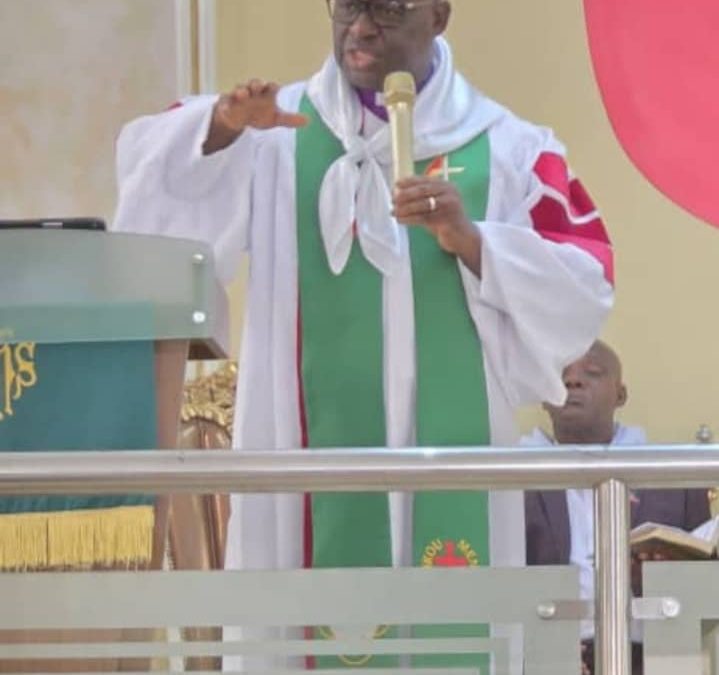On Sunday, 31st August 2025, Bishop James Boye-Caulker delivered a powerful sermon titled “The Indictment” at Jerusalem Viana Church, Angola. Drawing from Jeremiah 2:4–13, the message framed God’s relationship with humanity as a courtroom drama, with God as the plaintiff and His people as the defendant.
The sermon opened by exploring the legal metaphor woven throughout the prophetic text. “Jeremiah acts as the prosecuting attorney,” he explained, “interrogating the witness on behalf of the plaintiff, who is God Himself.” This set the stage for a penetrating reflection on spiritual complacency and misplaced devotion.
Central to the biblical indictment were two charges: abandoning their “glorious God for worthless idols” and rejecting the “fountain of living water” in favor of “broken cisterns that can hold no water.”
Bishop James Boye-Caulker emphasized that the issue is not a lack of religious activity, but the emptiness of its substance. “Church attendance may be at an all-time high,” he noted, “but God sees not only where your feet take you, He sees where your heart resides.” He compared superficial faith to “a diet of junk food—all calories, no nourishment.”
The sermon also highlighted the generational nature of faithlessness, urging parents to take responsibility for nurturing their children’s spiritual lives. “The consequences of our actions are inherited,” he stated. “We must be intentional in raising the next generation in the faith.”
Bridging the ancient text to modern life, the Bishop identified materialism, secularism, and political idolatry as today’s “broken cisterns.” He cautioned against seeking ultimate meaning in political systems: “To look for God in politics is to drink from shallow cisterns. It is to forget who we are.”
Using the example of Israel’s forgetfulness, Bishop James Boye-Caulker reminded the congregation of their true identity and calling. “We are made for the never-ending, gushing fountain of life,” he proclaimed, “yet we often settle for far less.”
The message concluded on a note of grace and hope, pointing to Jesus Christ as the divine advocate who “stands beside us before the eternal Judge, pleading for mercy and grace.” Attendees were urged to “drink deeply from His well of living water” without delay.
The service closed with a prayer for faithfulness and renewal, leaving the congregation with both a challenge and an invitation to deeper redemption.


